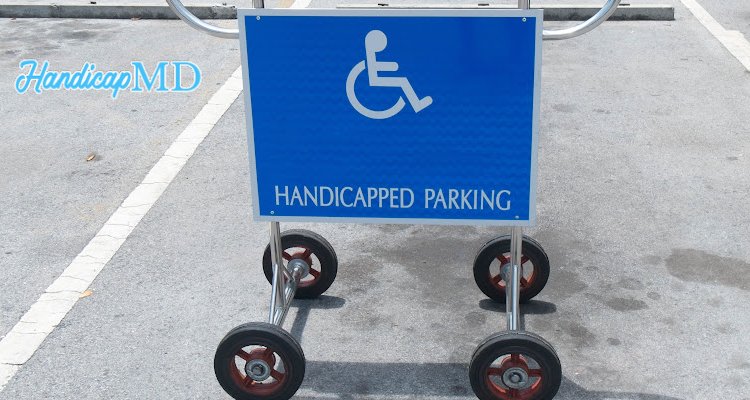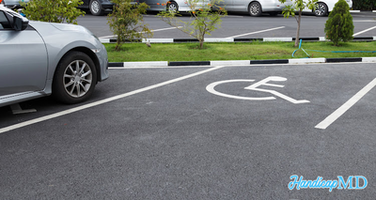
Myths vs. Facts: Debunking Common Misconceptions about Handicap Placards in Birmingham AL
Introduction
Welcome to our guide on debunking common misconceptions about handicap placards in Birmingham, AL. In this article, we will separate myths from facts and provide you with accurate information about the usage, benefits, and eligibility criteria for disability passes in this vibrant city. Whether you are a resident or a visitor, understanding the truth behind these misconceptions will help you navigate the world of handicap passes with confidence and clarity. Let's dive in and uncover the reality behind these common myths!
Importance of Disability Placards
Enhancing Accessibility in Birmingham AL
Ensuring accessibility is a shared responsibility. Handicap permits play a pivotal role in providing equal opportunities for individuals with disabilities. By allowing convenient parking and access, these contribute to creating an inclusive environment in Birmingham AL.
Common Myths
Myth 1: Handicap placards are only for wheelchair users
One common misconception is that only individuals who use wheelchairs qualify for Alabama handicap placards. The truth is, various disabilities, both visible and invisible, can warrant the need for a permit. Conditions such as mobility impairments, heart conditions, and respiratory issues all fall under the eligibility criteria.
Myth 2: Anyone can get a disability pass easily
Contrary to this belief, the process of obtaining a pass is not a simple task. Strict eligibility criteria, including medical documentation, are in place to ensure that these are issued only to those who genuinely need them.
Myth 3: Handicap placards are not necessary for temporary conditions
Some may think that permits are only for permanent disabilities. However, temporary conditions, such as recovering from surgery or undergoing treatment, can also qualify individuals for a permit.
Facts vs. Myths
Dispelling Myth 1: Various disabilities qualify for passes
The eligibility criteria encompass a wide range of disabilities, from physical impairments to chronic illnesses. This ensures that individuals with diverse needs can benefit from the privileges provided by disability passes.
Dispelling Myth 2: The process of obtaining a permit is stringent
To maintain the integrity of the system, the process involves thorough scrutiny. Applicants must provide medical documentation, and the application is reviewed by the Alabama Department of Revenue to ensure that permits are allocated appropriately.
Dispelling Myth 3: Temporary conditions can warrant a placard
Temporary disabilities, when they significantly impact mobility, can indeed qualify for a disability pass. This acknowledges the diverse nature of disabilities and ensures that everyone who requires assistance receives it.
Benefits of Placards
Parking Privileges and Accessibility Benefits
The tangible benefits of having a disability permit extend beyond reserved disabled parking spaces. Individuals with permits often enjoy closer proximity to entrances, making daily activities more manageable.
Applying for a Placard
Detailed Steps and Eligibility Criteria
The process of obtaining a disability pass involves specific steps, including obtaining a medical certification form from a qualified healthcare professional. Meeting the eligibility criteria is crucial, and understanding the application process ensures a smooth experience.
Renewing and Replacing Placards
Timelines and Procedures
Placards have expiration dates, and understanding the renewal process is essential. Additionally, in case of loss or damage, knowing the steps to replace a pass ensures continuous access to the associated benefits.
Misuse and Penalties
Consequences for Misuse of Permits
Misuse of disability passes undermines the purpose of the system. Penalties for misuse can include fines and legal consequences. It is crucial to respect the system and use it responsibly.
Frequently Asked Questions (FAQs)
How long is a permit valid?
Handicap permits are typically valid for a specific period, often linked to the individual's medical condition. Renewal procedures are in place to ensure that these remain with those who genuinely need them.
Can I use my pass in other states?
Yes, in most cases, these are transferable between states. However, it's advisable to check the specific regulations of the state you're visiting.
Is there an age restriction for obtaining a permit?
No, there is no age restriction. Disability passes are issued based on the individual's medical condition, regardless of age.
What medical conditions qualify for a permit?
A variety of medical conditions, both temporary and permanent, can qualify for a disability permit. It's essential to consult with a healthcare professional for accurate assessment.
Can I lend my pass to someone else?
No, handicap placards are non-transferable and should only be used by the individual to whom they are issued. Lending a permit to someone else is considered misuse.
How do I report misuse of disability passes?
Misuse can be reported to local authorities, providing details such as the placard number and observed misuse. This helps maintain the integrity of the system.
Conclusion
In conclusion, debunking the myths surrounding handicap placards in Birmingham AL is crucial for fostering understanding and promoting inclusivity. These are valuable tools that enhance accessibility for individuals with diverse needs. By being informed and respectful of the system, we contribute to creating a more accessible Birmingham AL.
.png)






